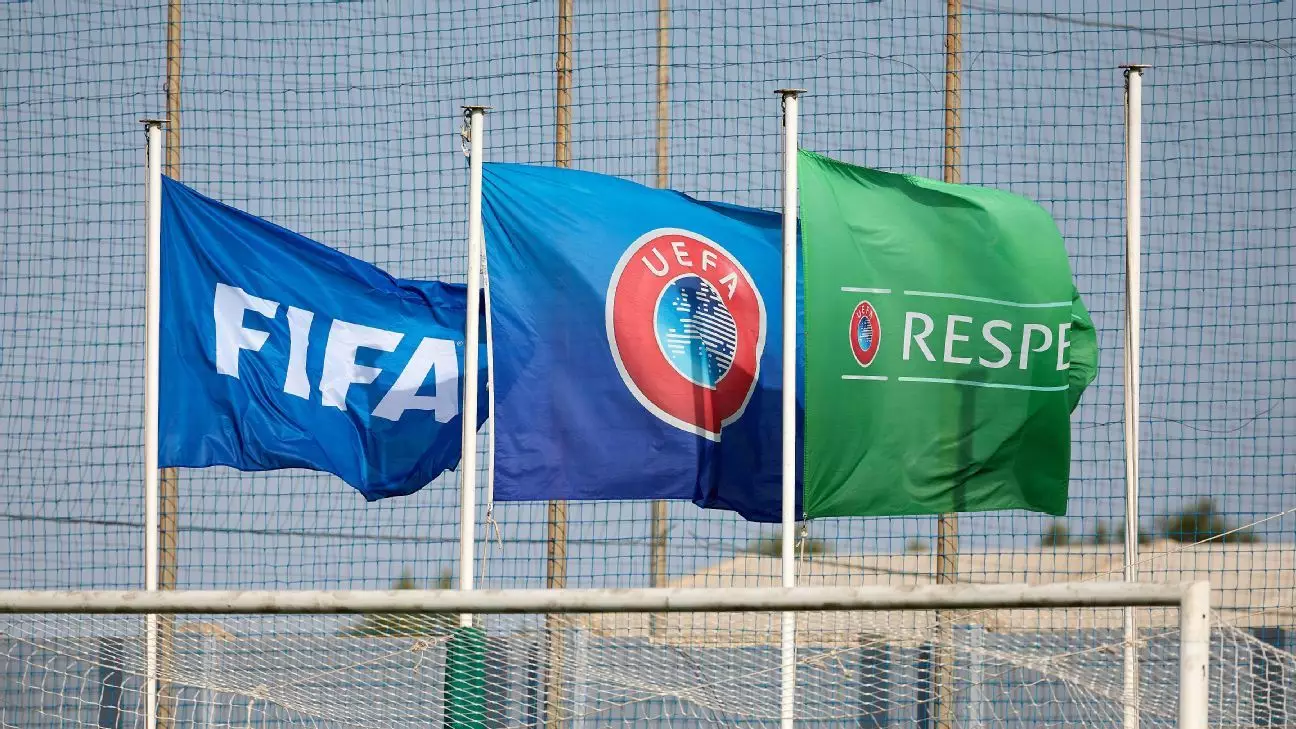The landscape of European football is on the brink of transformation as A22 Sports sets itself in motion with a new proposal aimed at establishing the Unify League. This plan seeks formal recognition from the continent’s governing bodies, UEFA and FIFA, following a pivotal judgment from the European Court of Justice (ECJ). This article examines the implications of A22’s bid, the underlying motivations, and the potential challenges that may arise as this proposal attempts to reshape club competitions in Europe.
The Super League concept has faced significant resistance since its conception. Initially proposed in 2021, the idea was met with immediate backlash from fans, clubs, and governing bodies alike. The recent ruling from the ECJ emerged as a critical juncture in this saga, signaling a government-backed acknowledgment of the need to address UEFA and FIFA’s authoritative stance in managing football competitions. The court deemed the established regulations to be an abuse of power, offering A22 a glimmer of hope as it now seeks to create a competitive framework that provides broader access to elite football.
A22’s application for formal recognition hinges upon the assertion that adherence to inclusivity and meritocracy will underpin any forthcoming tournaments. This stance aims to align with concerns regarding fairness in qualification processes and to alleviate the previously established monopolistic practices aimed at preserving traditional structures in the sport.
The shift from the Super League to the Unify League marks a strategic rebranding, with A22 now positioning the competition as a progressive alternative to existing formats. Changes proposed include a diversified participation model based on domestic league performances rather than pre-defined entries, echoing calls from various stakeholders for adaptability in the increasingly financialized football industry.
A key feature of the Unify League structure consists of the introduction of four leagues comprising 96 clubs. Notably, the participation mechanism will focus on performance metrics, which may increase excitement in domestic leagues, as clubs will have clear incentives to strive for excellence in their competitions. However, whether this model can truly deliver a level playing field remains to be seen and could be a point of contention.
A22 Sports articulates that the motivation behind its proposal extends beyond mere competition. CEO Bernd Reichart emphasizes the need to tackle pressing concerns such as escalating subscription fees faced by fans and the congestion of the player calendar. These issues hint at a broader crisis within football, where economic pressures and scheduling conflicts negatively affect both the sport’s stakeholders and its loyal supporters.
Moreover, Reichart’s comments concerning underinvestment in women’s football highlight a growing awareness of gender disparities in sports. By offering a complementary league structure for women alongside the men’s competition, the Unify League could signal a potential shift toward more equitable distribution of resources and visibility, provided that the structure is well-implemented.
While A22 presents their plans with enthusiasm, skepticism reigns in football circles, particularly among established leagues and clubs that have previously decried the Super League. Comments from LaLiga president Javier Tebas, likening A22’s new proposal to mass-produced goods without thorough economic consideration, encapsulate the dismissive attitude held by many.
The apprehension to accept the Unify League extends beyond immediate opposition; the long-standing relationships and trust built within existing leagues could pose significant barriers to acceptance. The Premier League’s quick rejection of the previous Super League initiative reflects the prevailing sentiment and the potential for fan-led resistance to repeat the past.
In wrapping up the examination of A22 Sports’ Unify League proposal, it is evident that while the initiative embodies a response to contemporary issues facing European football, its realization is fraught with challenges. Legal and logistical hurdles, combined with entrenched resistance from governing bodies and established leagues, will determine whether A22 can sufficiently demonstrate the viability of a new competitive landscape. The idea of inclusivity and meritocracy presented appears to resonate with the current demands of football fans, yet practical implementation remains a significant hurdle. Ultimately, the future of the Unify League will be shaped by ongoing discourse amongst stakeholders, making it a continually evolving narrative that requires careful navigation in a complex football ecosystem.

